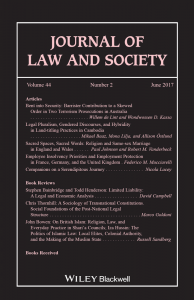The instrumentalization of sexism
by nmccoy1

Discussions surrounding Sarah Palin and Hilary Clinton have brought sexism to mainstream media attention. (see BBC article below) Beyond the superficial discussions of who women will vote for and who is a feminist, we are losing site of a fundamental and very dangerous problem. In the tradition of the Frankfurt School, in particular, Max Horkheimer, we are looking at the instrumentalization of ideas and theories for propaganda. As a system of oppression, sexism pervades social relations and the structures in which we live. Not only is sexism alive and well as can clearly be seen in the discussions surrounding Palin and Clinton but sexism has also been manipulated and therefore undermined. The use of sexism to invalidate a candidate’s credentials or to protect a candidate from scrutiny, results in the instrumentalization of sexism. This kind instrumentalization occurs when theories and ideas are used as a tool for domination. There are two effects to this: one is that sexism loses it meaning and power, it becomes a joke, a catchall if you will. Secondly, there is no possibility for critique. If we cannot critique Palin’s policy positions or qualifications without being sexist then we are no longer free and rational individuals (if we ever were).
Read More
Blackwell Reference Online entry on Sexism





1728-4457/asset/PopulationCouncilLogo.jpg?v=1&s=03074651676b98d6b9d0ef1234bd48fe7ff937c3)
I don’t think we need post modern theory to call out the political game being played at the expense of women, but I’ll bite. While the faithful flock to deify her, and the opposition flock to dethrone her, it’s clear that nobody sees her for who or what she is: a political candidate. They can’t see past the fact that she’s a woman and that represents, as Elizabeth Cady Stanton pointed out a century ago, the “ultimate form of invisibility.”
Though there are aspects of critical theory that can be conceived of as post modern, I would not include critical theory (in particular, that of the Frankfurt School) in the category of post modern theory. In terms of politics, yes, there is clearly a political game being played both with race and gender, however, the issue I raise here is essentially about (un)freedom. Looking beyond women and Palin, I am concerned with the use of sexism in a way that circumvents the possibility of critique and discussion. The same could be said of racism being instrumentalized. When rational critique is no longer possible according to Horkheimer, we have lost our freedom.
Well, post modern by the way of Foucault- that’s always been my take. Epistemologically I see them as the same. I hear you though on the instrumentalization of systems of oppression, but I’m not sure how it circumvents the possibility of critique. In fact, doesn’t it highlight them? Make them more salient to everyday life? Does that prohibit rational critique? Isn’t that what is so great about Public Sociology? Ahah! We had a moment!
When you instrumentalize ideas and theories as propaganda you are collapsing politics and the political. This distinction is instrinsic to individual autonomy in the ability to critique and to act. I am arguing that by using systems of oppression as tools within the realm of politics, it diminishes our ability to critically engage with those systems in the political realm. So for instance, if every comment made about a woman (Palin or Clinton for example) is deemed to be sexist, then sexism itself loses its meaning and hence, its power to incite action in the political, as opposed to within politics.
I don’t see the use of sexism in this current political race as having really illuminated deep seated issues of gender based discrimination and double standards. Rather, it has served to insulate Palin from real scrunity/critique on the one hand and on the other, made sexist remarks about candidates such as Clinton acceptable.
I think we may just have to agree to disagree on this one!
Oh- I get it. I think that’s a great way to look at it. However, the thing I will have to agree to disagree on is that this election hasn’t highlighted sexism. I think it’s got a lot of women (and men) fighting mad and that has been, unfortunately, the upside to it all. I don’t think we actually disagree, but have two different analysis of the same thing.
Just to add my own thoughts …. I agree that sexism has been used as a tool in this presidential election. I also agree that, as a result, Palin has been insulated from any real critique by many. I would argue that this was the intended consequence on the half of many that have engaged in the sexist dialogue surrounding Palin. “If we keep people focused on and speaking about how she looks in high heels we will keep the focus away from what really matters.” We have seen the same tools used concerning race with Obama. In both cases however, racism and sexism in America have been highlighted.
Regarding the topic at hand (sexism), there has been much conversation about the double standards for women in politics and the discrimination that Hillary experienced as a result of not being “feminine” or “attractive” enough, regardless of her experience or knowledge. Likewise, there have been many discussions regarding Palin and the focus on her body, rather than her experience or lack thereof. I think this argument is best supported by recognizing that these conversations have transcended academia and have actually taken place in the media (i.e. Countdown on MSNBC).
Ack! I’m about to post an news item along very similar lines. Sorry to ripoff your territory!